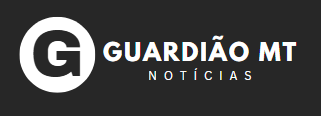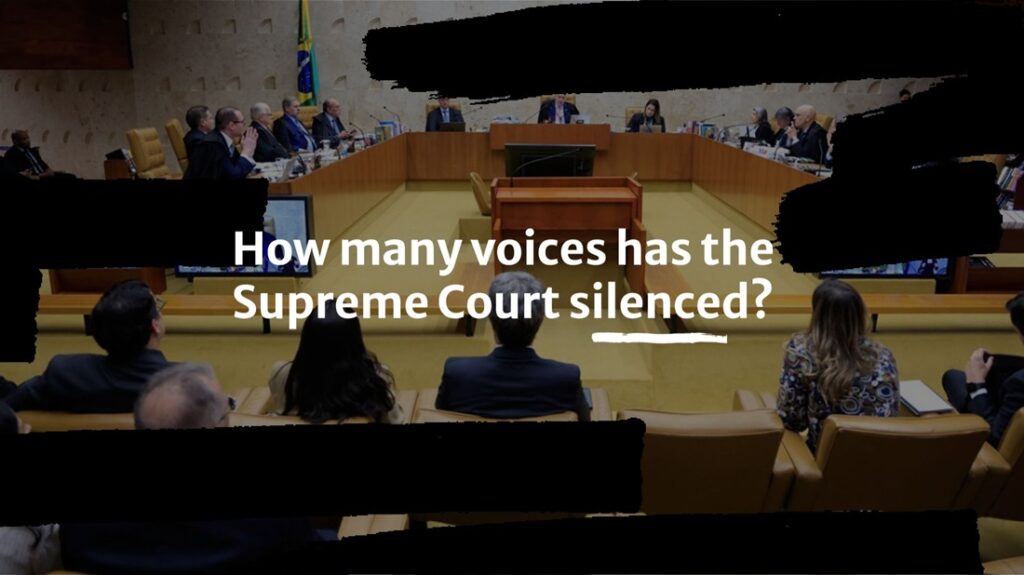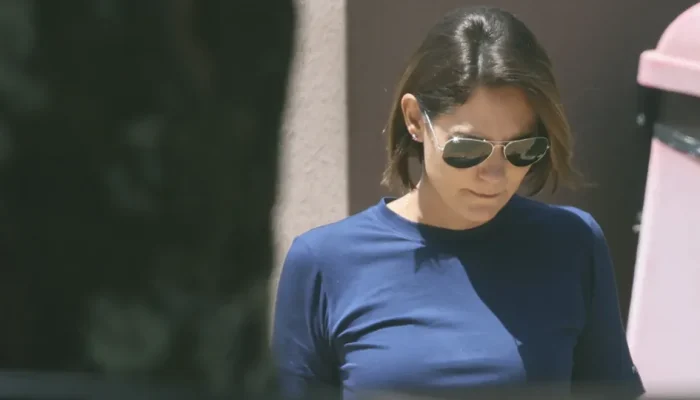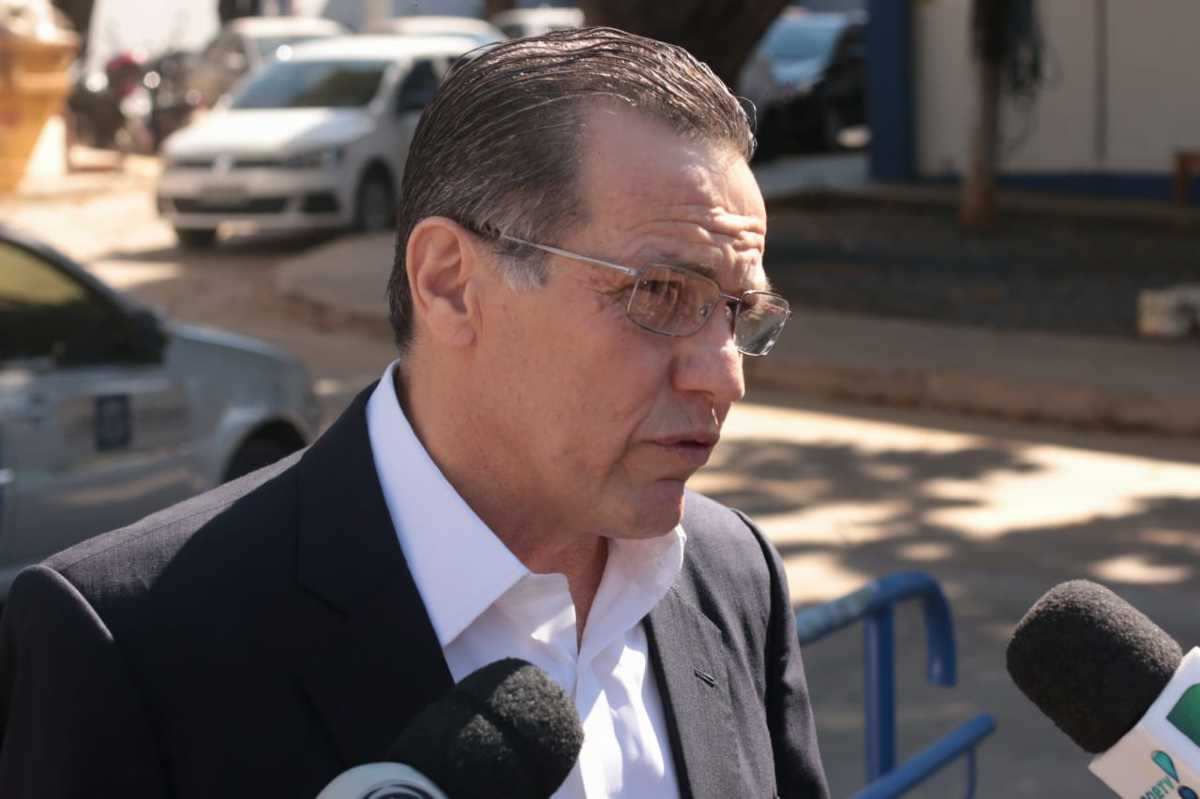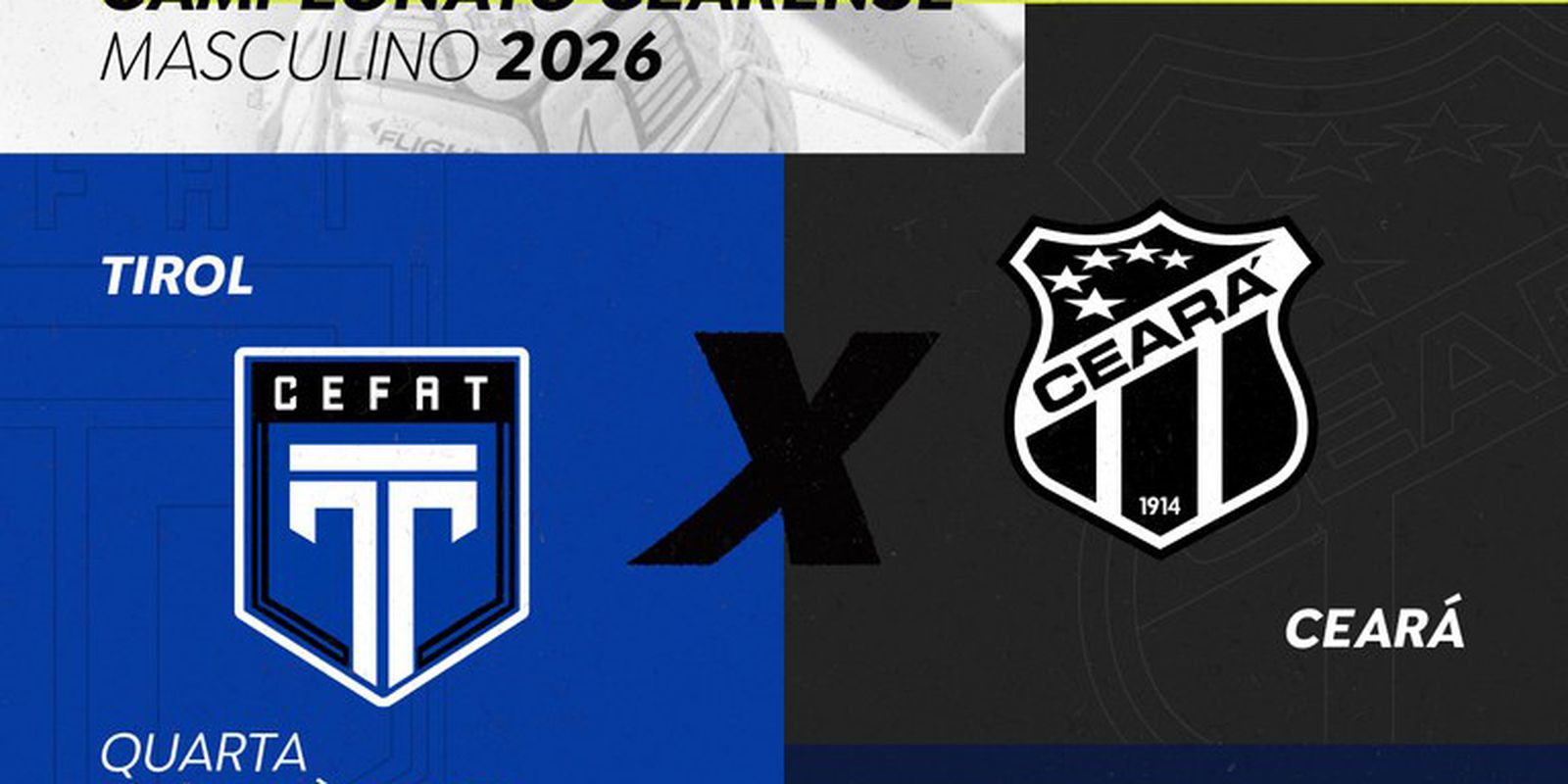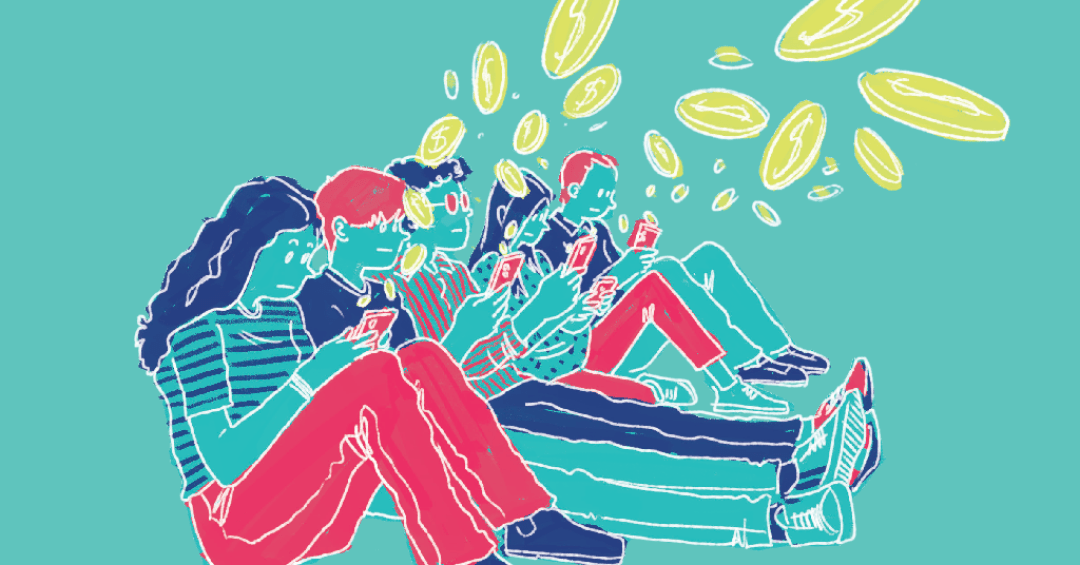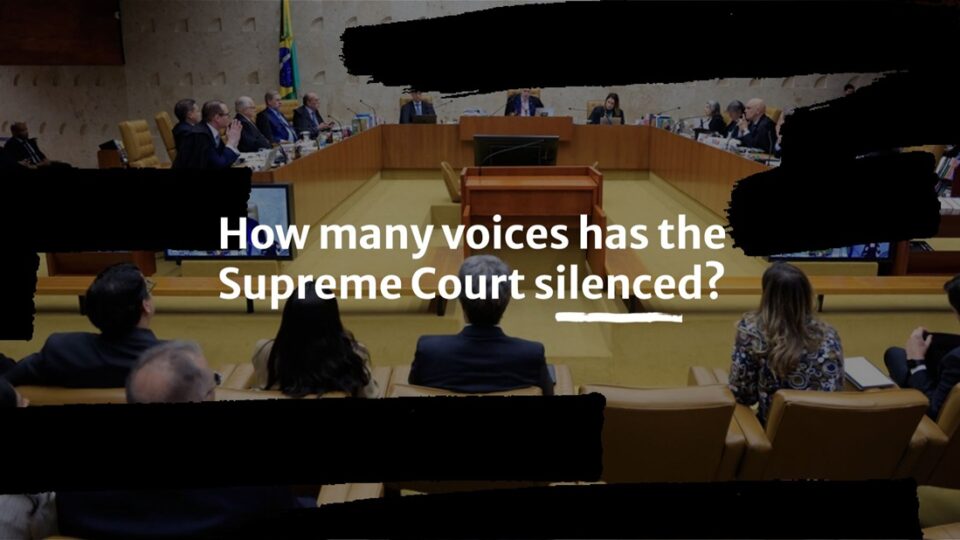
(This is an English version of the text originally published by Gazeta do Povo on Sunday, September 28, 2025)
The regulation of social media and the control of speech on digital platforms have become matters of concern in nearly every country. Yet in no nation considered democratic by international organizations has the censorship of a particular political movement become as common as it has in Brazil.
In recent years, as it intensified its offensive against right-wing voices, Brazil’s judiciary has not only initiated its own investigations — often marked by legal irregularities and controversy — but has also claimed the authority to unilaterally define the limits of acceptable speech.
Following a Supreme Federal Court (STF) ruling in June, Brazil has become an isolated case on the global stage — even when compared with dictatorships. It is the only country where the judiciary has fully seized control of the issue and unilaterally imposed rules governing speech control on social media.
The justification for this judicial protagonism is the alleged inaction of the legislature. However, that interpretation overlooks the fact that Congress deliberately exercised its prerogative by choosing not to legislate. After intense debates in 2023, the Chamber of Deputies decided to keep the 2014 Internet Civil Framework (Marco Civil da Internet) unchanged, opting not to advance new regulations for social media.
Even in certain authoritarian regimes that have passed laws to control the digital environment — such as Venezuela — the legislature was not sidelined in setting the rules for online platforms. There, despite the executive branch’s dominance over Congress, the institutional formality of parliamentary approval was preserved.
In June of this year, Brazil’s Supreme Court declared part of Article 19 of the Internet Civil Framework unconstitutional. The article had stated that platforms could only be held liable for failing to comply with a court order to remove content.
“What we’re witnessing in Brazil is a turning point in digital law and criminal procedure,” says Alexander Coelho, a lawyer specializing in Digital Law and a partner at Godke Advogados. According to him, the Court’s decision runs counter to the Internet Civil Framework, which was based on the principle of minimal state intervention.
The Supreme Court established a precedent requiring platforms to remove content deemed criminal — even without a court order. Some of the crimes listed are clearly defined, such as terrorism and child pornography. Others, however, are more subjective — among them, so-called “anti-democratic conduct.” This lack of clarity, Coelho warns, “is extremely dangerous.”
“The judiciary runs a serious risk of turning into a curator of what speech is allowed,” he cautions. “There’s a real risk that Brazil will cease to be an attractive market for social media platforms, given the growing number of restrictions and barriers that could make their operations unfeasible.”
According to Coelho, the Supreme Court’s actions set Brazil apart from other countries by “turning extraordinary measures into ordinary tools, under the guise of institutional protection,” and by placing decision-making power “in the hands of a single man.” “We don’t have clear rules of the game, like Europe does,” he adds.
Brazil’s Approach to Social Media Speech Mirrors Dictatorships, Not Democracies
For legal scholar Luiz Augusto Módolo, who holds a Ph.D. in International Law from the University of São Paulo (USP), “Brazil is aligning itself with countries that are more restrictive toward freedom of expression.”
“If we could place Brazil on a spectrum, unfortunately, we’d be closer to Russia—which years ago repressed the punk band Pussy Riot and turned Alexei Navalny into a martyr—than to the United States,” he says.
He sees similarities between Brazil and other authoritarian regimes, such as Venezuela and China. “Justice Gilmar Mendes, the dean of Brazil’s Supreme Court (STF), has openly expressed admiration for the Chinese regime. The STF has even held exchange programs with the Chinese judiciary,” he recalls. “Venezuela is the abyss staring back at us as we stare into it, to paraphrase [philosopher Friedrich] Nietzsche. Many people there have been arrested for criticizing the election stolen by dictator [Nicolás] Maduro,” he adds.
Módolo notes, however, that even in consolidated democracies, the issue of free speech on digital platforms remains unresolved. “The phenomenon of social media—and its impact on society, communication, and politics—has not yet been properly absorbed by the law. No country has a perfect legal framework,” he says. “The so-called ‘fake news’ label has been used in several European countries as a pretext to silence inconvenient opinions.”
Legal expert Coelho points out that the European Union’s Digital Services Act (DSA), enacted in 2022, is based on the principles of risk mitigation and protection of democracy, but differs sharply from what Brazil’s Supreme Court has imposed through its own regulation.
“The EU tries to ensure that platforms classify and disclose their content moderation criteria, providing users with clear explanations of what they consider hate speech. The rules of the game must be transparent within each platform—how moderation is done, what is allowed or not. So, it’s not about arbitrary censorship, but about systemic regulation with public oversight,” he explains.
Even with these safeguards, Coelho warns that fairness is far from guaranteed. The DSA has already created problems and, in some cases, alienated even its early supporters. “People on the political left initially thought the DSA was fantastic, but we’re seeing that enthusiasm fade. They’re now rethinking many of its requirements because it’s impossible to comply with them. It’s one thing to put it on paper and another to make it work in practice,” he says.
One recurring issue, he explains, is overblocking—the excessive removal of content, including posts that should be considered lawful. This is precisely what platforms had warned about after Brazil’s Supreme Court ruling on the Marco Civil da Internet. “Even with the use of artificial intelligence, it’s difficult to control the massive volume of posts online. There’s a clear risk of overblocking,” Coelho warns.
Controversial German Regulation Becomes Model for Laws Around the World
In Brazil, pressure for stricter regulation has grown after events such as January 8, which were used to suggest that social media fueled anti-democratic discourse. In 2024, the release of details about the alleged preparation for a coup attempt in 2022 further fueled this narrative, providing justification for the state elite to intensify efforts to overturn Article 19 of the Internet Civil Framework (Marco Civil da Internet).
Although Brazil’s regulatory crackdown has taken a harsher turn, it is part of a broader global trend. A landmark event often seen as the starting point of this wave was the entry into force of Germany’s Network Enforcement Act (NetzDG) in January 2018.
The NetzDG was drafted by the executive branch and approved by the Bundestag in October 2017 amid intense controversy. The law established a so-called “duty of care”—cited by Brazil’s Supreme Court in its ruling on the Marco Civil—requiring platforms to remove “manifestly illegal” content within 24 hours of notification. Despite criticism over vague terminology, the law was enacted.
The law has already led to serious instances of overblocking, such as in the case of Mike Samuel Delberg, a representative of Germany’s Jewish community whose Facebook account was suspended after posting a video describing an antisemitic attack. The suspension occurred because the platform feared penalties under the NetzDG for posts containing racist or xenophobic content. Ironically, the post reporting the attack was censored.
Russia adopted the NetzDG as a model for its own legislation, creating rules with vague terms and imposing severe penalties for certain online content. This marked the first step in an escalating wave of censorship that, by 2019, gave a state agency the power to block “unreliable” content. Later, new legislation criminalized “blatant disrespect” toward the state, further expanding control over digital speech.
Following its invasion of Ukraine in 2022, the Russian government tightened censorship even further, introducing penalties of up to 15 years in prison for spreading “false information” about the Armed Forces and extending these restrictions to other government bodies.
Turkey also drew inspiration from the German model when it passed its Disinformation Law in 2020, granting authorities broad powers to define what constitutes “disinformation.” One of the law’s first targets was opposition leader Kemal Kılıçdaroğlu, accused of spreading fake news.
In Venezuela, the government enacted the Constitutional Law Against Hate, for Peaceful Coexistence and Tolerance in 2017, under the pretext of promoting diversity and eradicating hate and discrimination. Despite its broader scope, social media remains a primary target. Approved by Congress, the law imposes prison sentences of ten to twenty years for those who, including via digital means, “promote or incite hatred, discrimination, or violence.”
Even in democracies, the NetzDG has inspired laws affecting free expression. In Australia, the Online Safety Act of 2021 prohibits content deemed “offensive” according to “generally accepted standards of morality and decency.” The law also bans posts classified as “abusive” or likely to cause “serious psychological harm.”
In the United Kingdom, the Online Safety Act of 2023 requires platforms to remove illegal content under the supervision of Ofcom, the regulatory agency with the authority to impose substantial fines. Critics, including the Open Rights Group, warn that vague terms like “harmful content” open the door to censorship of legitimate speech.
Fonte. Gazeta do Povo
